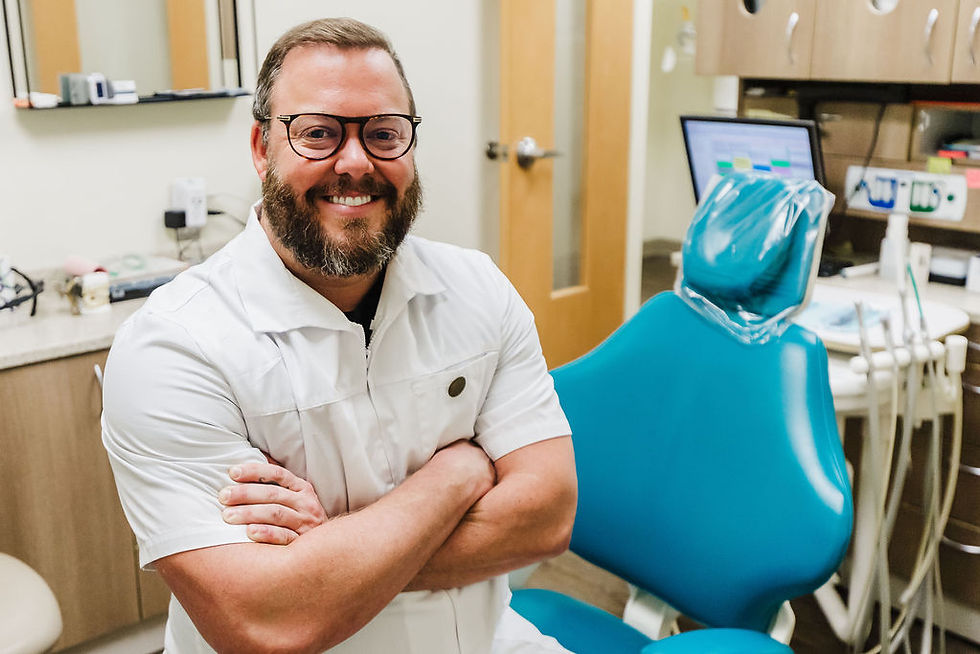Tiny Eyes, Big World: When Your Little One Needs an Eye Exam
- Midtown Vision

- Jun 24, 2025
- 2 min read
When Should Your Child See the Eye Doctor?
As a parent, ensuring your child’s health and development is a top priority. One aspect that’s often overlooked is their eye health. Clear vision plays a vital role in your child’s learning and development, which is why regular eye exams are essential. But when should your child start seeing the eye doctor, and how often should they go? Let’s break it down.
The First Eye Exam: 6 Months Old
You might not realize it, but babies should have their first eye exam at just six months of age. At this stage, an eye doctor can check for:
Proper focusing and tracking abilities
Healthy eye alignment
Signs of congenital conditions, such as cataracts or glaucoma
Early detection of any abnormalities can make treatment more effective and set the stage for healthy vision.
The Preschool Eye Exam: Ages 3-5
The next major milestone is around age three. By this time, your child’s vision has developed further, and they’re using their eyes in more complex ways. An eye exam at this age will evaluate:
Visual acuity (how clearly they can see)
Depth perception and eye coordination
Common issues like lazy eye (amblyopia) or crossed eyes (strabismus)
Early intervention can prevent these conditions from interfering with your child’s ability to learn and play.
Before Starting School: Around Age 5 or 6
Before your child begins kindergarten, a comprehensive eye exam is a must. This ensures they can see clearly at all distances, helping them succeed in the classroom. During this exam, the doctor will:
Test for nearsightedness (myopia), farsightedness (hyperopia), and astigmatism
Evaluate eye-hand coordination and focusing skills
Children rely on their vision for about 80% of their learning, so catching and correcting any issues early is crucial.
School Years: Annual Check-Ups
Once your child is in school, regular yearly check-ups will help monitor any changes in their vision. Conditions like myopia often develop during these years and may require glasses or contact lenses. An annual eye exam ensures your child’s vision keeps up with their growing needs.

Signs Your Child Might Need an Eye Exam Sooner
While routine exams are important, you should schedule an appointment immediately if you notice any of these signs:
Frequent eye rubbing or blinking
Squinting or covering one eye
Holding books or screens very close to their face
Complaints of blurry vision or headaches
Difficulty maintaining eye contact or tracking moving objects
Tips for a Positive Eye Exam Experience
Taking your child to the eye doctor doesn’t have to be stressful. Here are some tips to make it a smooth experience:
Explain what to expect in simple terms.
Bring their favorite toy or book for comfort.
Schedule the appointment at a time when your child is well-rested and not hungry.
Healthy Vision, Bright Future
Regular eye exams are a simple but powerful way to support your child’s overall health and success. From their first coo to their first day of school and beyond, healthy vision helps them explore, learn, and grow with confidence.
So, when was your child’s last eye exam? If it’s been a while—or if they’ve never had one—schedule an appointment with Dr. Durtschi at Midtown Vision today. Their future looks bright when they can see it clearly!
%20(3).png)







Comments